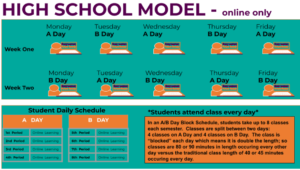Online in Rhode Island

ed: Why did you give your support to the budgeting changes in Rhode Island?
The funding formula that the General Assembly approved June 10, 2010 will meet the needs of Rhode Island students. Because it takes into account student need and district capacity, it will be fair to all school systems. It will provide adequate funding to educate all students in our state.
Supporting student achievement is our highest priority. A transparent, consistent education funding formula will allow us to ensure that student achievement remains the top priority for our state and for every school district.
How do the budgeting changes positively impact equity for each student in Rhode Island?
The new funding formula allocates resources fairly. It includes an innovative transition plan so that local districts have time to adjust to the revised distribution of funds. It will phase in the changes in funding allocations over 10 years.
This funding formula is based on the principle that the money will follow the student. It is a dynamic system that will redistribute allocations as enrollment patterns change. We are confident that this funding formula will take us from being the only state without a funding formula to being the state with the best funding formula in the country. I am very pleased that the General Assembly has taken this historic step, which will help us to invest our education resources wisely and to transform education in Rhode Island.
What immediate effects can Rhode Island students see in terms of blended learning strategies, technology strategies, or new equipment for online learning initiatives?
Eighth grade TechLiteracy Assessment results indicate an 8% increase in the number of students reaching the proficiency level compared with last years results. Many of the educators administering the assessment attributed the increase to our focusing on the standards that were being assessed, realigning curriculum, and changing instructional delivery models.
We are currently working to put an online eLearning environment in place in Rhode Island. That is still in the development stage.
How much does Rhode Island currently spend per student when it comes to new technology, each year?
The regular Rhode Island Title IID – E2T2 award is approximately $1.3 million annually. This award typically reaches 250 teachers across the state,providing intensive professional development and $3,000-$4,000 worth of technology equipment to the participants classrooms, with the explicit goal of increasing student access to technology.
The ARRA funds brought an additional $3.2 million in funds to Rhode Island in the summer of 2009. We used those funds used to increase the number of participants in the Rhode Island Teachers and Technology Initiative (RITTI – RIs E2T2 program) during the summers of 2009, 2010, and 2011. We anticipate that by the end of the 2011 summer institute, we will have doubled our participation rate.
Individual districts have their own technology budgets. We do not have information on how much they each budget.
How will Rhode Island schools use education technology for staff and professional development?
Our E2T2 summer institutes integrate educational technology strategies throughout the PD experience.
The eLearning Environment that is under development incorporates and accommodates PD.
When it comes to charter schools, are you offering any support to the growth of charter schools that employ teaching methods that initiate a portion of the day devoted to online learning?
The concepts and ideas that fuel educational leaders who wish to found and develop charters vary widely. At RIDE, we have the privilege of reviewing charter applications to determine program relevance (as it relates to the needs of our students, communities, and the state), program stability, and sustainability. If an application contained a solid plan for the incorporation of on-line learning grounded in research-based methodology accompanied by plans for monitoring and measuring its success, I’m confident that we would give it consideration.
Do you support the use of independent or differentiated authorizers for opening up new charter schools?
By statute, RIDE is the only authorizer, but we welcome applications from EMOs, CMOs, locally established charter projects, and mayoral applications as well.





0 Comments
Leave a Comment
Your email address will not be published. All fields are required.